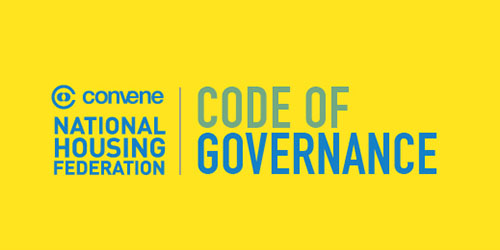Recently Convene spoke to Bill Gill, Director at BG Audit & Consultancy Limited, about the recent changes to the Housing Code of Governance.
What Is The Value Of A Code of Governance?
Codes of Governance can generally trace their origins in the UK back to the dark days of the early 1990s with impressive corporate failures and public sector scandals. Unfortunately, many of the issues these Codes hoped to address through self-certification still exist today; whether it be sudden corporate failures, pension black holes or questions over the probity of public servants. Despite this, Codes of Governance continue to push organisations to be better, encouraging and goading them to be fairer, more honest and maintain higher levels of probity and transparency.
How Does This Translate In Our Modern Era?
In the increasingly complex 21st century, Codes of Governance are now looking to raise standards of accountability to all stakeholders, improve diversity within governance frameworks and highlight environmental impacts.
The National Housing Federation (NHF) updated their Code of Governance at the end of 2020, taking their lead from the 2018 updating of the UK Corporate Governance Code. This was swiftly followed by the Charity Commission updating their Code, sensibly just amending a couple of sections rather than applying a complete refresh.
The spectre of the Grenfell disaster hung large over the changes to the NHF Code but also the increasing predominance of ESG Reporting were also to the fore.
Boards cannot escape climate change and the demanding targets established by the Government around energy efficiency and zero carbon will challenge boards across the sector. The Sustainability Reporting Standard for Social Housing published in November 2020 dovetails nicely into the NHF Code and the Social Housing White Paper, highlighting that self-regulation can be a far less stressful experience than if requirements are imposed from the outside.
How Has Recent Social Movements Impacted The NHF Code of Governance?
Other aspects of the NHF Code address accountability to tenants and also staff. The Black Lives Matter protests, #MeToo and the various other aspects of equality are crystallised in pay inequality that the sector is not immune to. Increased diversity, including having people with ‘lived experience’ contributing within the governance structures, can only benefit the decision making at Board level.
Tough decisions will need to be taken and boards will need to bring residents with them as they face the dual challenge of providing a safe and secure environment for existing residents, whilst also meeting the demands of the Government in terms of increasing housing supply. The skills and experience of Board Members is on an ever upward spiral though and the calibre of individuals now being attracted to the sector far exceeds those I remember working with in the 1990s.
What Is The Future Of The Housing Industry In Light Of The New Code?
The closer working relationship between the Regulator of Social Housing (RSH) and the Housing Ombudsman around complaints also raises this issue higher up the agenda. Boards will need to pay closer attention to the volume and nature of complaints, probably the clearest element of the ‘resident’s voice’ that they have access to as scrutiny groups can often be biased due to the personal circumstances of residents.
So, maybe it isn’t all change but rather a continued evolution of the sector’s governance regime that can quite rightly hold itself out to always be at the leading edge. The 2020 NHF Code will certainly stretch providers and their boards, requiring an even greater focus on clear and accurate data.
As can be seen, the whole social housing world is only moving in one direction, whether it be the Government and the Regulator increasing consumer regulation, funders requiring more in terms of ESG reporting and most important of all, our residents demanding to be heard and listened to.
How Can Convene Help Your Organisation Fulfil The New Code of Governance?
A Board Portal like Convene can help you to achieve better governance by streamlining every stage of your decision-making process. Our award-winning software’s features and security will ensure that you can have the best board meeting possible so you can focus on productive discussions and strategy-planning for the future.
With our new Convene in Teams product you can now roll this out to the whole organisation. The future is virtual and we pride ourselves on being one of the most accessible board portals on the market. We believe that when everyone is included in discussions then we can forge a better future.
If you would like to learn more about how we can help your organisation, please contact us or read our customer success stories from those in the housing sector!








